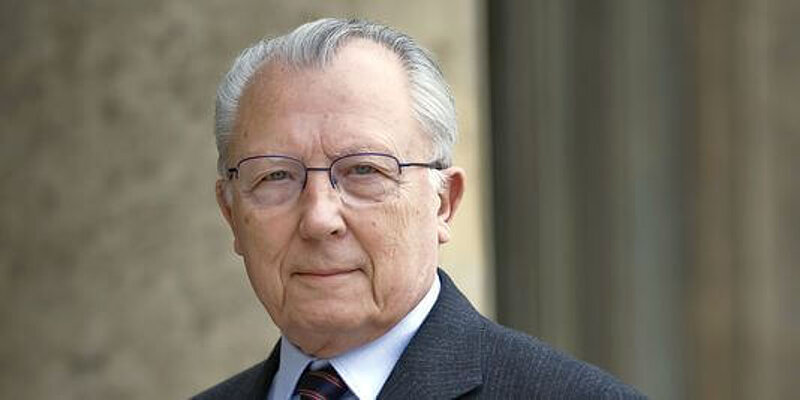
In an interview with the political weekly Le Point, Jacques Delors discusses the state of the EU, expectations for the French EU Presidency, Angela Merkel's record, his admiration for Helmut Kohl and his regrets about Brexit.
In the face of global challenges such as climate change and geopolitical power shifts, the EU is more important than ever. The question today, however, is whether the political will is sufficient and the methods still suitable to lead an EU of 27 into the future. European integration must be deepened without undermining the principle of subsidiarity. In doing so, Delors promotes his model of a federation of nation states based on the triad of stimulating competition, strengthening cooperation and unifying solidarity. The rule of law is and remains the foundation of the European project and must be resolutely defended. At the same time, the EU must proactively address pressing challenges. These include the fight against climate change, climate-friendly economic reconstruction, a European energy policy and gradual steps towards greater strategic sovereignty.
You can read some selections from the interview below. Read the full interview by Jérôme Béglé, Emmanuel Berretta and Sébastien Le Fol (in French) here.
Does today’s Europe match your vision for Europe from 25 years ago? In terms of your work pre-1995, would you say that Europe has developed well?
Yes, but only partially. You have to get a little empirical here. In terms of the global upheavals, the new balance of power, and the new players that are making their presence felt, I think the European Union is more necessary than ever. The question is whether the support for it exists today and whether the working methods are still appropriate.
Many have the impression that Europe has become a tired, hardened continent that does not understand its power vis-à-vis the USA and China. That we do not understand what our place should be...
This is true, but there are countries that show solidarity with Europe, without which there will be no future. That is why the European project rests on the triptych of “competition, development, solidarity”. If this does not exist, if every disribution of European resources, for example, causes extreme tension, then we will not succeed.
Do you support the idea of "European sovereignty"?
Yes, but that will not be feasible right away. I have to support a specific method: when I was in the Commission, I set up a small commission from time to time to deal with various problems. That’s how we worked successfully on issues like the euro or Erasmus. So it is essential for the European Union to take care of the central issues. It’s not possible, or no longer possible, to work with spectacular announcements, of which several presidencies have made excessive use.
What issues should the French presidency prioritise?
Oh, I will be careful not to give advice to the French Presidency, and I do not want to complicate its work. I know that the President of the French Republic is heavily involved in European affairs. You have to look at where the European Union is at the moment and look at the critical issues: take up the absolutely urgent fight against climate change, which requires an ecological reconstruction that will create hundreds of thousands of jobs. Advance a European energy policy, and - I dream of it - a proper social policy! And of course, the responsibility towards everything foreign, the need for a certain autonomy of the European Union in the midst of this world spectacle in which everyone is tugging back and forth, trying to make themselves heard - whether it is the president of Turkey or of another country. The European Union must ask itself where it can reasonably take action.
Hungary and Poland are moving away from the values of the European treaties. The Commission is threatening them with the weapons at its disposal. Is this the best way to deal with Budapest and Warsaw?
Issues are being discussed here that shake the very foundations of the European Union, that call its very existence into question. So you can't give in here. If you shake the very principle of a house built on the rule of law, it is imperative that the other leaders remain strict. If a government leader doesn't agree with this or that position, you can discuss. But here I think it is too serious. One must defend the principle itself of the European enterprise, which is based on competition, development and solidarity.
